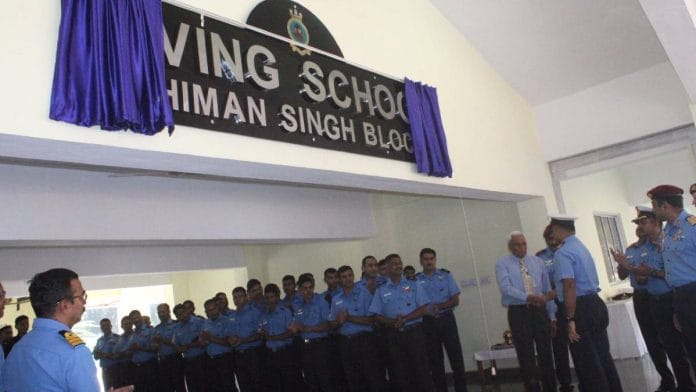New Delhi: Fifty years after having won the country’s second-highest gallantry award — the Maha Vir Chakra — 1971 war veteran Chiman Singh, 78, who trained Mukti Bahini in underwater operations known as ‘Operation X’, has filed a petition before the Chandigarh Bench of the Armed Forces Tribunal (AFT) seeking special pension.
Singh’s petition seeks to quash the order by the Navy authorities that denied him the same.
Special pension and gratuity are granted at the discretion of the Centre to sailors who are not transferred to the Fleet Reserve and are discharged in large numbers in pursuance of government policy, according to Regulation 95 of the Navy (Pension) Regulations, 1964.
The policies may include reduction of the strength of establishment of the Indian Navy or of reorganisation, which may result in paying off any ships or establishments.
After reaching out to the Navy multiple times over the years and having received no response, Singh decided to file a petition in the AFT, his counsel captain Sandeep Bansal told ThePrint.
With effect from the date of his discharge from service as a non-pensioner in 1972, Singh has sought grant of pension along with arrears and consequential reliefs and benefits with interest.
In his petition to the AFT, he has stated that denial of pension is contrary to the settled law as upheld by the Supreme Court in 2016 and implemented for “similarly-situated soldiers”.
In 2016, the court had ordered that those Navy personnel who had retired after 1976 and after rendering 10 years of active service be given special pension.
“The Armed Forces Tribunal has directed the Centre to state the reasons as to why ‘battle casualty status’ has not been granted to the applicant,” Bansal said. Those who die or are injured in battle are granted the status, which then enables them to draw war injuries pension.
The AFT made the remark during the hearing of the case and it was not part of Singh’s demand.
ThePrint has reached out to a Navy spokesperson via mail with queries on the subject and a response is awaited. This report will be updated if and when a response is received.
Also Read: Army, Navy & IAF propose pension for officer trainees who suffer disabilities during training
Singh’s case
Singh had joined the Indian Navy as a boy entry and was trained as a clearance diver (CD), super specialist cadre, in the Diving Branch of the force in 1961.
It was in 1971 that Singh became part of a training squad specially deputed to train Mukti Bahini naval commandos during the Bangladesh Liberation War. He was picked up as one of the warfare specialists/strategists to train the Mukti Bahini and a few deserters from Pakistan’s newly acquired French submarine at Plassey, Agartala, Tura and other secret locations for underwater “top secret operations” in what was then known as East Pakistan.
This was much before the India-Pakistan War was declared in December 1971.
During the war with Pakistan, Singh was “severely injured/wounded by friendly fire from the Indian Air Force” at Khulna harbour, at a time when Pakistan was preparing to surrender. He was taken as a prisoner of war with a few other Indian Navy officers by the Pakistan army.
Upon surrender of the Pakistan army to the Indian Army and liberation of Bangladesh, Singh, who was severely injured, was rescued by the Indian Army. He was airlifted and taken to Command Hospital, Barrackpore, and then finally to Bombay for treatment of battle wounds and bullet injuries over a period of almost six months till May 1972.
Recognising Singh’s contribution, the Navy in 2017 christened a modern dive-training facility at the Diving School of the Southern Naval Command in Kochi as the “Chiman Singh Block”. At the time, it was jointly inaugurated by Rear Admiral R.J. Nadkarni and Singh himself.
Singh was discharged from naval service in 1972 on expiry of his engagement as a non-pensioner. At the time, a soldier could serve in the Navy for only 10 years and used to be later drafted in the Fleet Reserve. Singh was, however, not drafted in the reserve.
In 2009, Singh had also requested grant of ECHS (Ex-Servicemen Contributory Health Scheme) membership. He was, however, informed that “even non-pensioner SSC (Short Service Commission) officers have not been extended the benefit of ECHS”.
In 2019, Singh reached out to Navy officials to bring to their notice the war injuries that he had suffered. He was still not granted the special pension, his counsel said.
While reaching out to the Navy intermittently over the years, Singh has referred to judgments of the Supreme Court in 2016 and the Mumbai AFT in 2022 for grant of special pension to retirees.






